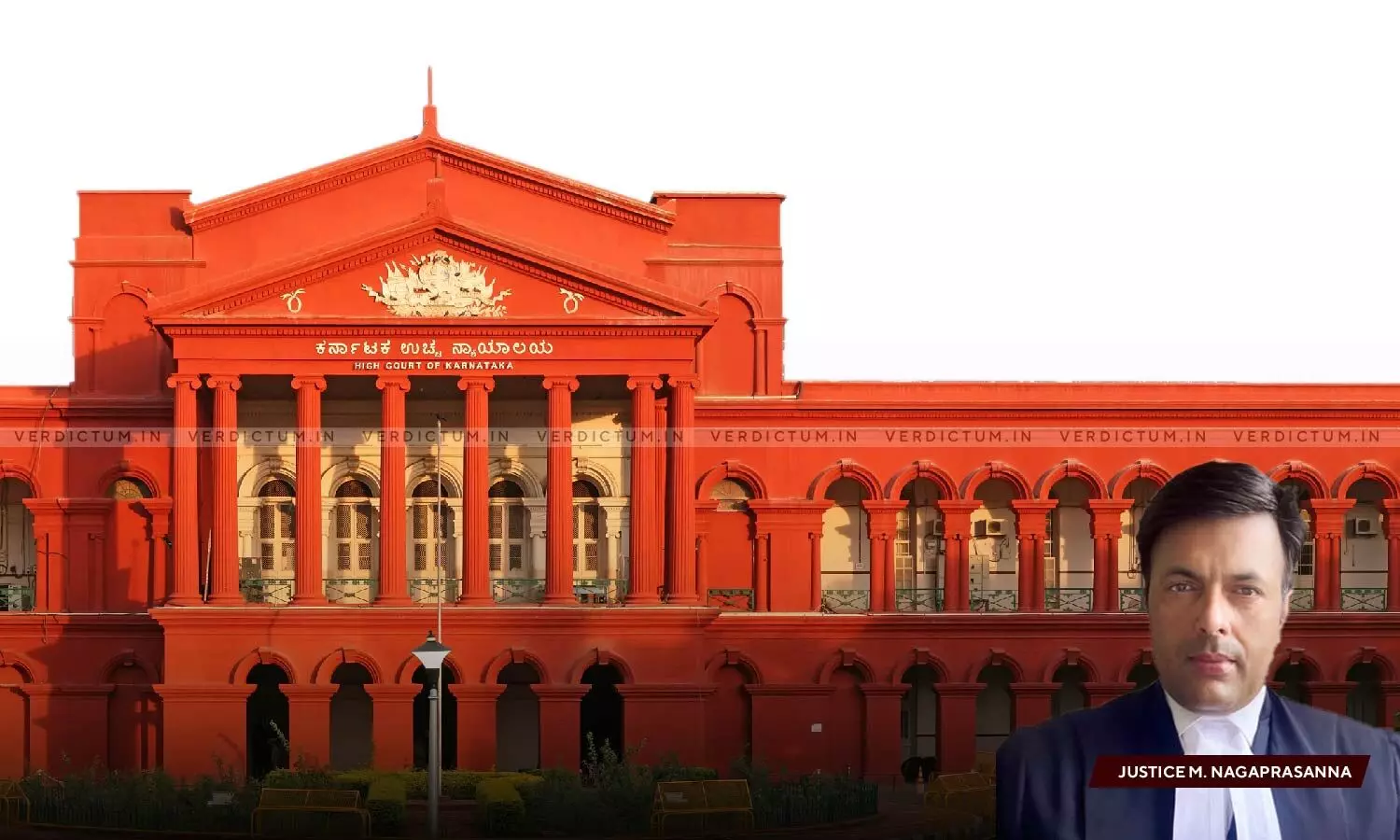
One Who Isn’t Indian Citizen Can’t Stay Beyond Period Indicated In Visa Except With Approval Of Centre & Immigration Officer: Karnataka HC
 |
|The Karnataka High Court has held that one who is not a citizen of India cannot be permitted to stay in the country beyond the period indicated in the Visa except with express approval of the Centre and Immigration Officer.
The Court was dealing with a case in which a US citizen was seeking a direction to the Central Government and Bureau of Immigration to issue her an exit permit.
A Single Bench of Justice M. Nagaprasanna observed, “Whoever remains in India for the period exceeding the period for which the Visa was issued, his/her stay would be contravening the provisions of the Act, which would incur a penalty. No citizen who is not a citizen of this country can be permitted to stay in the country beyond the period indicated in the Visa except, with express approval of respondent Nos.1 and 3 or any other exceptional circumstances bringing it to the notice of the authorities.”
The Bench directed the petitioner to pay the full fee of her MBBS course after which the respondents would issue an exit permit to her.
Advocate Kiran B.S. appeared for the petitioner while DSGI H. Shanti Bhushan, CGC Reshma K. Thammaiah, AGA B.V. Krishna, and Advocate N.K. Ramesh appeared for the respondents.
Brief Facts –
The parents of the petitioner were citizens of India and residents of the United States and the petitioner was born in the USA. The petitioner entered India and after her graduation, found herself eligible to take the Common Entrance Test, 2015 (CET) which was being conducted by the Karnataka Examinations Authority. She declared her nationality to be Indian and secured 571st rank and was allotted a medical seat in the Mandya Institute of Medical Sciences under the quota reserved for candidates sponsored by Government.
The petitioner did not renounce her citizenship or the nationality of the USA after becoming a major. She applied for a fresh passport with the US Consulate General which accepted her application and granted her a passport of USA to be valid till March 16, 2022. After the acquisition of the said passport, the petitioner filed an application before the Bureau of Immigration for a grant of exit permit but the same was rejected.
The High Court in view of the facts and circumstances of the case said, “No flexibility can be shown qua Section 4 of the Citizenship Act or Section 14 of the Foreigners Act, as any flexibility would lead to tourists or immigrants overstaying in the country, which would sometimes become detrimental to the nation.”
The Court further said that the respondents would be well within the four corners of the law to initiate any proceedings against the petitioner.
“The petitioner has shamelessly resorted to falsehood and achieved her goals by unethical means as indicated hereinabove. Curious enough, the petitioner is not even wanting to pursue her career in this country, having secured benefits throughout her career contending that she is an Indian. But she is a student, who would not be aware of the consequences of law or consequences of the aforesaid breach and falsehood”, asserted the Court.
The Court directed the respondents to hold their coercive arm of the law to be stretched upon the petitioner in the peculiar facts of the case, subject to the condition that the petitioner would pay all the fees, for all five years of the MBBS course at the rate of the fee that would be charged to NRI/overseas citizen of India treating the petitioner’s admission to be in that category and the fee to be paid to the State.
“… the exit permit is directed to be issued subject to the aforesaid condition, all, again, owing to peculiar facts of the case and the conduct of the petitioner misrepresenting herself to be an Indian, snatching away the career of an Indian”, the Court directed.
The Court, therefore, said that if the petitioner is left off the hook without any condition, it would be putting a premium on the misrepresentation that she has made throughout calling herself to be an Indian citizen.
Accordingly, the Court partly allowed the plea.
Cause Title- Dr. Bhanu C. Ramachandran v. The Union of India & Ors.